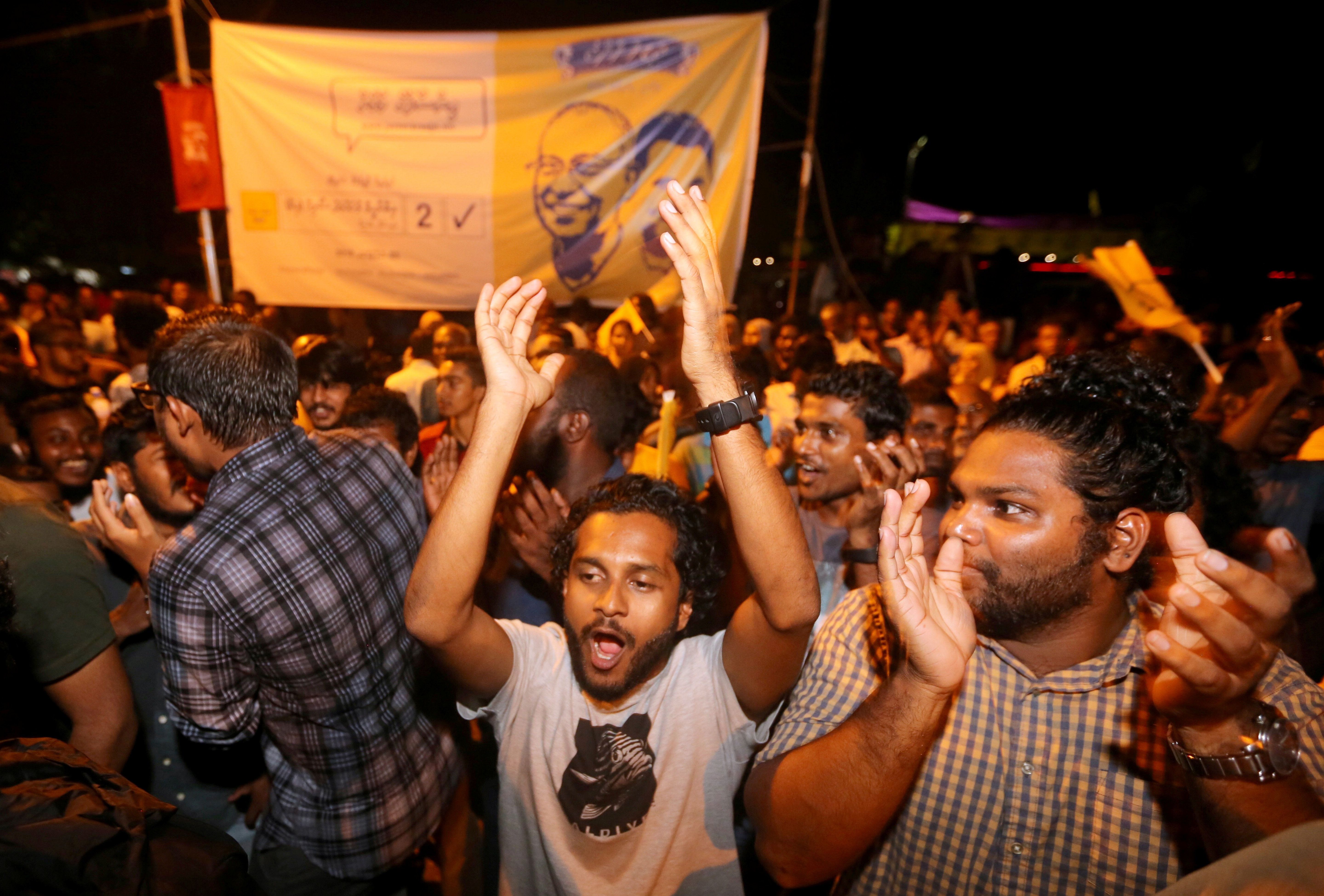September 25, 2018
Last weekend, there was a presidential election in the Maldives, a nation of about 400,000 people who live on 1,192 islands and 26 coral atolls in the Indian Ocean. Little attention was paid before the vote because observers, both inside and outside the country, assumed that President Abdulla Yameen -- a strongman who has worked hard to build relations with China -- would win, even if he had to cheat.
Surprise: He lost. Another surprise: He accepted defeat, perhaps because the result wasn’t even close.
Voters who cast ballots for opposition candidate Ibrahim Mohamed Solih were probably motivated mainly by frustration with corruption in Mr. Yameen’s government and his firm crackdowns on dissent. The US and EU had even threatened sanctions in response to his habit of jailing critics.
But the bigger story here is the growing regional rivalry between China and India. As we wrote in February, the Maldives have historically allied with India, but Yameen had tilted the country toward China to win investment in infrastructure, particularly in support of tourism, an economic lifeline for this small country. Most of those tourists now come from China. Beijing, for its part, sees the Maldives as a key piece of its broader strategy to establish friendly ports for its ships – both commercial and military – across the Indian Ocean.
India, fearful of expanded Chinese influence, had backed opposition candidate Solih. Before the vote, exiled former president Mohamed Nasheed, pushed from power by Yameen in 2012, called on New Delhi to intervene to prevent the current president from stealing the vote. Some in India urged their government to answer the call. (Back in February, Nasheed requested an outright Indian invasion.) The opposition’s resounding victory rendered all of that unnecessary.
But before we score this a lasting win for India, remember that China still has long-term advantages here. The Maldives still need Chinese money and Chinese tourists to grow its economy, and Beijing will surely try to use that as leverage for its broader Indian Ocean aims.
And don’t forget there’s no nation on Earth in greater danger from rising sea levels caused by climate change. According to National Geographic, the average elevation in the Maldives is just four feet above sea level, and the country’s highest peak stands just under eight feet above the water’s edge. We’re only half kidding when we wonder if the Chinese, who are pretty good at raising land from the sea elsewhere, might have a solution…
More For You
The French President Emmanuel Macron (R) welcomes the European Commission President Ursula von der Leyen (L) at the Elysee Presidential Palace.
SOPA images
European Union leaders agreed to move ahead with “Buy European” policies as part of a broader push to de-risk from the US and boost competitiveness amid China’s industrial prowess.
Most Popular
Think you know what's going on around the world? Here's your chance to prove it.
PA via Reuters Ukraine's Vladyslav Heraskevych, with his helmet, which features pictures of people killed in the war with Russia. Heraskevych was ruled out of the Men's Skeleton event by the International Olympic Committee just over an hour before competition began, pictured at the Cortina Sliding Centre, on day six of the Milano Cortina 2026 Winter Olympics, Italy. Picture date: Thursday February 12, 2026.
20: The number of fallen Ukrainian athletes and coaches depicted on a Ukrainian skeleton racer’s helmet at the Winter Olympics, which prompted the International Olympic Committee (IOC) to disqualify him on Thursday.
Russian President Vladimir Putin attends his annual end-of-year press conference and phone-in in Moscow, Russia December 19, 2025.
Sputnik/Alexander Kazakov/Pool via REUTERS
The Russian government has begun blocking the popular messaging apps WhatsApp and Telegram in a sweeping crackdown aimed at forcing Russians to use a state-backed alternative called MAX, which critics say would enable censorship and surveillance.
© 2025 GZERO Media. All Rights Reserved | A Eurasia Group media company.
